Hook me up a new revolution, ‘cause this one is a lie // We sat around laughing and watched the last one die. – Foo Fighters, “Learning to Fly”
The Lord is the everlasting God, the Creator of the ends of the earth. He does not faint or grow weary; his understanding is unsearchable. He gives power to the faint, and strengthens the powerless. Even youths will faint and be weary, and the young will fall exhausted; but those who wait for the Lord shall renew their strength, they shall mount up with wings like eagles, they shall run and not be weary, they shall walk and not faint. – Isaiah 40.28-31
Let me begin by saying I am humbled by the attention this blog has garnered these past few weeks. I have very much enjoyed reading and responding to comments, and am thankful for the many compliments I have received. I am grieved, however, that a post like “I’m Tired, Too” has resonated with so many people because so many people are struggling to find their way in our 21st century economy – here in America and around the world.

One of the comments I received raised a question: if we want to do something about economic injustice, where do we begin? Thankfully, more and more people are taking the first step by becoming aware. The YouTube video Wealth Inequality in America has received over 12 million views since it was uploaded in late 2012. Former Labor Secretary Robert Reich has just released a full-length documentary, Inequality for All, which he made specifically to raise awareness about where we are, demonstrate how we got here, and advocate specific steps to stem the tide of plutocracy. Inequality.org has catalogued a list of more than 50 books that expose, explore, and critique various aspects economic disparity, most of which have been published within the last 10 years. (I would add Nickel and Dimed: On (Not) Getting by in America (2001) by Barbara Ehrenreich as a must read). Our eyes are opening.
Now the question becomes: what do we do with our awareness of this present economic reality? Ignore it? Resign ourselves to it? Or act on it?
Like Secretary Reich, I want to see us, as a nation, act on our awareness. I want to see us confront the injustices (and the resulting inhumanities) of grotesque economic inequality. I want to see us transform present disparity into future opportunity and ultimately prosperity for the many rather than the few. And, also like Secretary Reich, I believe we can!
Reich offers a list of specific action items on the Inequality for All website as fulcrums for the heavy lifting. I agree with all six; however, I think his list is too narrowly confined to policy making. Policies are necessary, but those policies won’t be enacted without a groundswell of public insistence. So, to complement Reich’s suggestions, here is my own list of “ingredients” that I believe are essential for creating that groundswell.
1. Realize there is no magic bullet. If you’re looking for a single, simple solution to all this you’re not going to find it – here or anywhere else. A network of social, political, and ideological roots has given rise to the disparity of our present age. Like a vine that encroaches upon and then engulfs everything in its path, this disparity will have to be pulled down and cut away. No amount of wishing (or ranting) is going to make it disappear. No single election result or act of Congress is going to make it all better. Some positive and necessary steps may, in fact, cause things to get worse before they get better. We’re going to have to put our backs into this work, be willing to get our hands dirty, and (perhaps most importantly) be willing to inconvenience ourselves in order to make progress. All manner of thorns lurk in the depths of this overgrowth. If we back down every time we get pricked or cut, we won’t get anywhere. Combating this disparity is a long-haul endeavor. Ultimately we’re going to have to dig out the roots.
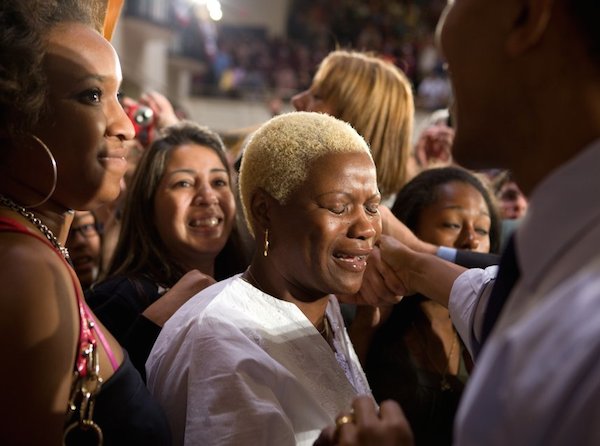
2. Realize there is hope. This is a point Robert Reich has emphasized in countless interviews, and it cannot be repeated enough.Disparity may have covered the American dream like an invasive vine, and many of us may literally feel choked by it; but it hasn’t always been this way. Particular policies have introduced this disparity at the national, state, local, and corporate levels and allowed it to take hold. That means other policies (including those on Robert Reich’s “take action” list) can be enacted to reverse its course. We’re not up against a force of nature here. This mess is man-made and men (and women!) can unmake it. We just have to find the social and political will to begin mounting a challenge.
As a follower of Christ, I also find hope in the Scriptures of the Christian faith. Inequity is as old as iniquity, and God has long called, empowered, and accompanied His people to stand against the divisive inclinations of earthly power and privilege – both where they exist in the world and where they exist in our own hearts and minds. God sent Moses to challenge Pharaoh; He sent the prophets to confront the kings of Israel and Judah; He sent Jesus to establish the New Covenant rooted in love rather than law; and Jesus sent His disciples out to embody that love, which by its very nature both transcends and subverts the barriers that segregate humanity: sex, ethnicity, nationality, and social standing being chief among them (Galatians 3.28). I not only believe God is still with us in the struggle for justice, I believe God inspires (perhaps even instigates) that struggle.
“I not only believe God is still with us in the struggle for justice, I believe God inspires (perhaps even instigates) that struggle.”
3. Work outside the political system in order to change the economic system. If disparity has made our socio-economic landscape resemble the kudzu-covered Georgia countryside, ideological entrenchment has made our political landscape resemble the wasteland of the Western Front. There appears to be more than political theater to the confrontational (and sometimes hateful) behavior currently displayed by many politicians, their surrogates, and supporters. A venomous and intractable spirit underlies the sound bites. We no longer have debates; we have exchanges of dogma, one barrage after another. The opposing sides are dug in deep, and anyone who ventures onto the battlefield will almost certainly be co-opted into the stalemate.
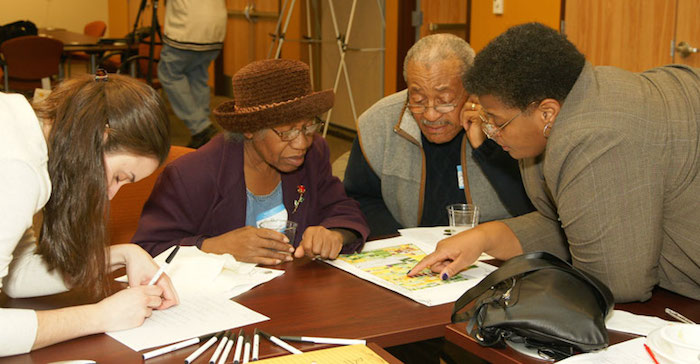
Our prospects for making political headway against inequality in such an environment certainly appear grim. However, we should not allow them to deter us. If we wait for circumstances in Washington to improve “one day,” we’ll be waiting for a long time. The question isn’t whether the time is right in Washington, the question is whether the time is right for the people who are struggling economically – and who are willing to struggle for greater equality. We should also remember that we have Martin Luther King, Jr. as a shining exemplar for how to affect change in extreme political conditions.
“Civil Rights proponents would (and could) cooperate with and confront people across the political spectrum because they weren’t seeking a political triumph; they were seeking a more just society. “
There are many reasons why the Civil Rights Movement of the 1950s and -60s is still the gold standard for social activism, but one of them is that Dr. King and other leaders of the movement acted politically without becoming partisans. It did not matter to them who was in office or which political party controlled what branch of government. Civil Rights proponents would (and could) cooperate with and confront people across the political spectrum because they weren’t seeking a political triumph; they were seeking a more just society. Rather than vying for public office to produce change, they applied pressure on those in office by mobilizing a grass roots movement of the American people through boycotts, marches, and peaceful demonstrations. Rather than relying primarily on state and federal courts to mandate change, they tried their case in what Dr. King referred to as “the court of public opinion.” Establishing such a position outside the system enabled Dr. King to claim and retain the moral high ground. It also allowed him to work with President Lyndon Johnson on Civil Rights without obliging him to also support the Vietnam War or other administration policies. That is the kind of strategic, social, and moral force I believe we will need to muster if we are to see meaningful change. Our politicians are firmly in the deep pockets of the 1%. Climbing in after them isn’t going to flush them out; it will only trap us in there with them.
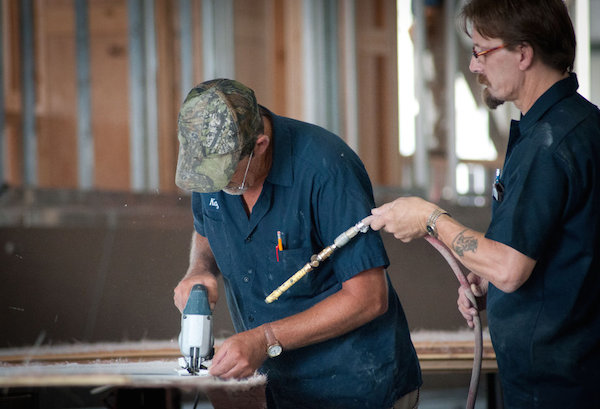
4. Educate yourself. You don’t have to be an economist to understand something is fundamentally wrong with an economic system that produces such grotesque inequality any more than you have to be a Mac Genius to know something is wrong with your computer. Therefore, I don’t think anyone has to earn an economics degree to tackle the issue of economic disparity. In fact, I would contend that analyzing and evaluating our economy strictly from an economics perspective (i.e. numbers) is one of the reasons we find ourselves in this mess. What’s missing from Wall Street’s sophisticated equations and algorithms is the human dimension behind the numbers. Balance sheets may be balancing in the boardrooms of corporate America; but in dining rooms and living rooms all across this great nation, that corporate math is forcing hard working people not only to defer dreams but also basic necessities.
“What’s missing from Wall Street’s sophisticated equations and algorithms is the human dimension behind the numbers. Balance sheets may be balancing in the boardrooms of corporate America; but in dining rooms and living rooms all across this great nation, that corporate math is forcing hard working people not only to defer dreams but also basic necessities.”
That said, if we want to spark debate about economic disparity and mobilize to confront it, we need to be conversant in the subject matter. We have to understand the nature, scope, and scale of the problem in order to address it effectively. My background is in theology. Engaging the issue of economic disparity has required me to read, study, and ask a lot of questions about a whole host of things I was not familiar with previously. I’m still no expert (not even close), but thankfully I have some knowledgeable friends to guide me, and in our Internet age we all have a lot of tools at our disposal. Use them. Here’s a basic tool kit to get you started.
5. Get out more: Specifically, we need to get outside of our segregated socio-economic bubbles. One of the reasons I believe the wealth gap in America has continued to widen over the last 40 years is that, until recently, many middle-class Americans haven’t paid it any mind. Why? If you were doing okay, chances are most of the people you knew were doing okay, too. Even if our commutes are long, most of us don’t travel all that far from home. The other side of the tracks might as well be on the other side of the galaxy.
That was certainly the case for me. I grew up in a firmly middle class world. I had everything I needed and most everything I wanted. That I would go to college was never in doubt, and my circle of friends is populated with people who have earned multiple college degrees. Well into my thirties, the skies seemed blue and the grass seemed green. The system seemed to be working in my narrow slice of life, so I assumed it must be working. The idea that I would not have a “good job” was inconceivable to me.
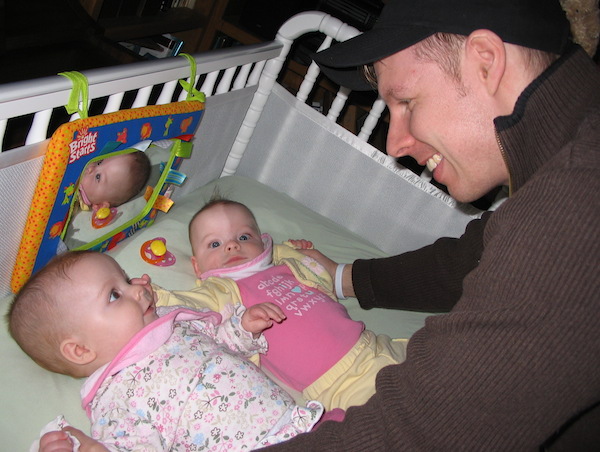
Then in the summer of 2008, the inconceivable happened. I found myself without a job and with twin daughters on the way. The economy was in the gutter, and there were no prospects on the horizon. I finally landed a part-time position that Christmas at a discount retail store earning $6.80 an hour – the federal minimum wage at the time. When I put in my application, I asked for $10 an hour, which I thought was modest and completely reasonable. The manager quickly informed me it would be $6.80 or nothing. I took it. After a few weeks, I settled into a routine where I was consistently working 20 hours a week, for which I earned a grand total of $136 before taxes. No paid vacation. No sick leave. I did receive a 10% employee discount; but paying $18 for $20 worth of stuff isn’t much of a perk when you have to work nearly 3 hours for that $18.
This experience opened my eyes to the cavernous nature of the wealth gap. If it had not been for the generosity of my in-laws and my parents, I don’t know what we would have done. Even if the company offered me a full-time schedule, the $1,088 pre-tax dollars I would have earned per month (at 40 hours per week) would not have come close to meeting my basic needs, much less my family’s. 70 hours a week wouldn’t have been enough. I will never forget the day I sat on the edge of the bed staring at my pay stub and realizing that if I worked every single hour the store was open, each and every week, it probably still wouldn’t be enough. There was no way I could provide fully for my family at that wage, no matter how hard I worked.
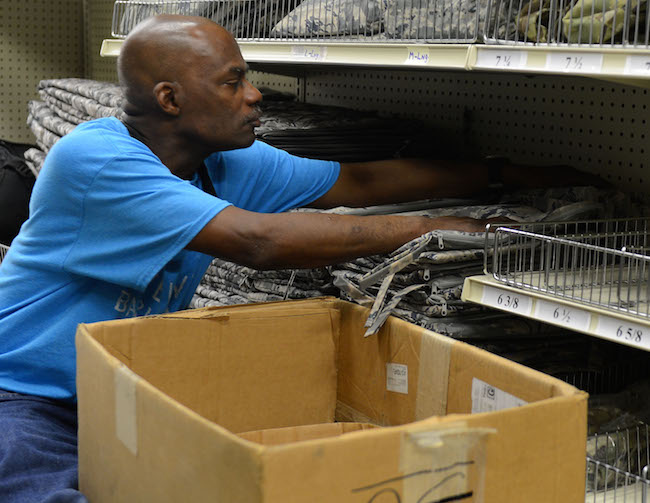
And I did work hard, as did my coworkers. We were on our feet and in motion every minute of every shift (except for our mandatory breaks): running the registers, unpacking merchandise, sorting and tagging merchandise, stocking and straightening shelves, taking inventory, answering the phone – you name it. Every bit of it was essential to the company’s functionality. We made that business run. Yet, we were paid a pittance for our labor. Even the select few who received full-time schedules and (somewhat) higher pay were struggling, as stock room and break room conversations revealed. One of the stock room supervisors used to talk about his finds in the “Amen Corner” of the meat case at his grocery store, where they stocked discounted about-to-expire packages. He always tried to go shopping on the day they did the mark downs, because that was the only way he could afford to buy “fresh” meat. Another stock room employee, who had been working at the company for well over a decade, commented one day that he rarely let his gas tank get lower than half, because he couldn’t afford to pay for a one full tank at a time. These weren’t teenagers working an after school job; they were grown men working long and hard for something much less than a living. And prior to 2008, I didn’t know they existed.
They – and millions of others like them – deserve better. They deserve to be seen, known, and respected as people and as employees, not exploited like modern-day serfs. That is why I feel convicted to take up this issue, and to lend my voice and energy to this cause. It’s also why I am asking you to lend your voice and your energy, too. Keep reading. Keep sharing. Keep engaging. Ask questions. Share ideas. Share experiences. Help shine light on what’s really going on in our world. Our present economic reality won’t improve for the many (rather than few) until we, the many people of the United States, insist that it does.
It’s time to create a groundswell.
Feature Image courtesy of the White House.


























